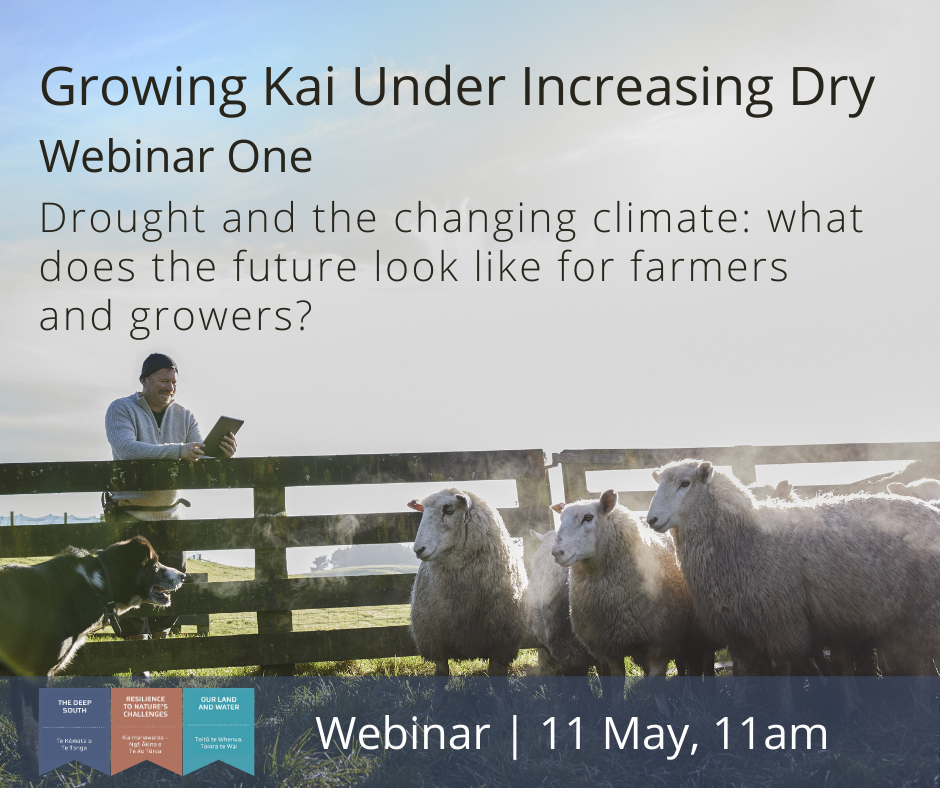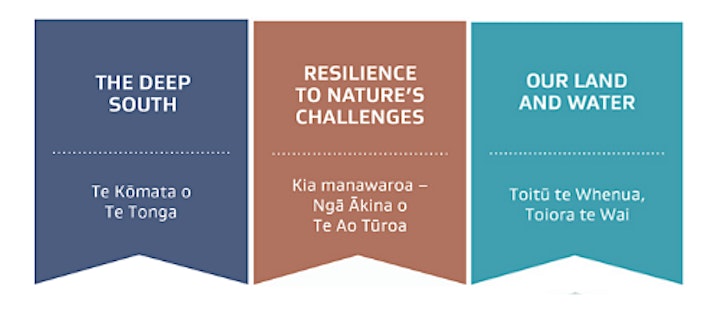Tuesday, May 11, 2021
11:00 AM – 12:00 PM NZST
Location
Online webinar
Webinar 1 | The future for farmers and growers
A rolling symposium on drought, climate change and primary sector resilience

This webinar, the first of three in our Rolling Symposium on Drought and the Changing Climate, will cover the most recent drought projections. It will take you through how drought is modelled, will cover projections out to the end of this century, and will explain how the science has progressed.
The webinar will also cover the quickly changing science of extreme weather modelling. This form of climate modelling investigates the fraction exteme events (like drought) that can be attributed to climate change, and estimates how much climate change is costing us.
Information and projections like this form the basis of guidance and planning at both regional and national levels and provides an insight for farmers, growers and policy makers into a future of more severe drought.
What is a rolling symposium?
Three short background webinars, bringing you the latest in climate projections, drought resilience research and land-use science, culminating in an all-day event to generate evidence-based conversation around future drought policy.
Registrations for all three webinars and the all-day event are now open:
- Webinar One, 11 May: The future for farmers and growers
- Webinar Two, 18 May: Farm profits and community resilience
- Webinar Three, 25 May: What to grow and where?
- Symposium, 31 May: Growing Kai Under Increasing Dry

ABOUT OUR PRESENTERS
Josh Te Kani
Josh is a specialist in Māori communications with a background in iwi broadcasting and iwi council/crown engagement. As the Vision Mātauranga Knowledge Broker for the Resilience Challenge, Josh works to increase the understanding of Mātauranga Māori and our cultural capability, enabling effective iwi engagement and enhancing our research to give enduring results for our communities.
Andrew Tait
Andrew is NIWA’s Chief Scientist for Climate, Atmosphere and Hazards. He specializes in applications of climate data and products, and climate change impacts and adaptation research. He has previously been seconded to the Ministry for Primary Industries to work on the Primary Sector Science Roadmap and to the Department of Conservation to build internal capacity around the utilisation of climate data and climate change projections.
Andrew is a lead author of the Australasia chapter of the IPCC Fifth Assessment WGII Report, a member of the WMO Commission for Climatology (CCl) executive, co-chair of the WMO CCl Focus Area on Climate Services for Societal Benefits, and the previous chair of the Pacific Islands Climate Services Panel.
Suzanne Rosier
Dr Suzanne Rosier is a climate scientist at NIWA in Wellington. She played a key part in helping launch weather@home ANZ to the public, and has subsequently analysed the large NZ datasets with a particular focus on extreme rainfall. Her new weather@home ANZ experiments are looking into how weather and climate extremes might be different a few decades from now.
Luke Harrington
Luke Harrington is a Senior Research Fellow at the New Zealand Climate Change Research Institute. Luke's research looks at how climate change is making extreme weather events more likely or more intense, with a particular focus on the methods used to come up with these answers.
Luke's research in 2016 culminated in the first comprehensive attribution study of a New Zealand drought (the 2012/13 event), which has informed subsequent Treasury estimates of the cost of climate change from worsening drought impacts. Luke is now looking at better ways to understand and quantify changes in both extreme heat stress and drought over the next several decades, as well as their health and economic impacts.